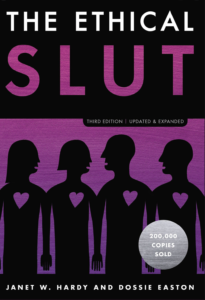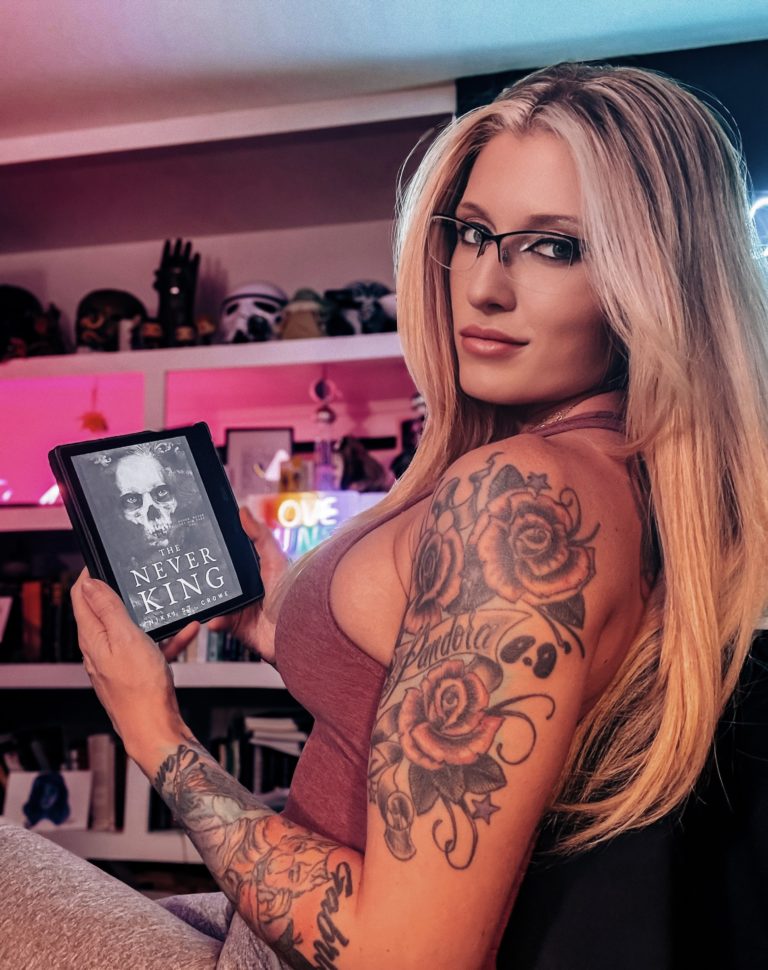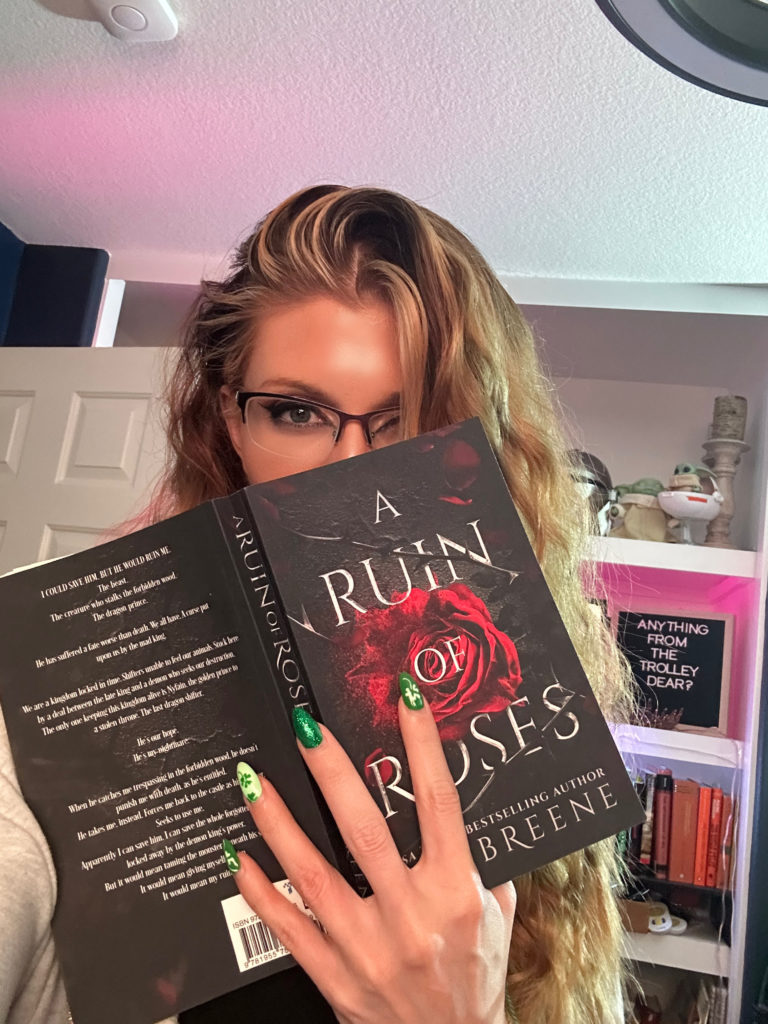The Ethical Slut – Musings and Book Review
The Ethical Slut: A Guide to Infinite Sexual Possibilities is an English non-fiction book by Dossie Easton and Janet Hardy

First, I’ll start by saying that I had heard of this book in sex-positive circles, forums, and sexual psychology sites targeted at sexual health. I’ve heard the good, the bad, and the ugly but wanted to form my own opinion on this book. I wrote the following review in pieces, chronologically, as I listened to all 8+ hours of this book. I will say right from the start that many of the negative comments were things such as:
-
“This fantasizes the idea of poly life.”
-
“As if sex could save the world…”
-
“Seriously, it even goes almost as far as to say better sex could have prevented the Holocaust.” (To be fair, it does not directly state this, it does allude to how better-sex could save the world though, which… I don’t entirely disagree with, but I digress.)
-
“This book assumes that anyone reading it is already successful at dating, monogamy, or already married, and makes this a poorly written book because that simply isn’t the case.”
As a professional, an author, and sexuality researcher, I will first say no book is written for EVERYONE. The author must identify a target audience and write in a way that best resonates with that audience. It is impossible to please all the people all the time, so it is impossible to write a book that is truly meant for “all.” There are books that do a good job relating to the most generalized audience of course, but this simply isn’t that book. This book appears to be targeted at those open enough to accept the possibility of alternative relationship, whether that be wanting to support friends or family by learning more about their lifestyle; curious about it for yourself; or, you are wanting to get a deeper understanding of the foundations. Many of the negative reviews I came across were honest, but came across as negative more from shock and misunderstanding the dynamics at play. If this book is your first experience with the term “poly” , “kink” , or “open relationship”, I’d imagine it would feel like falling into the deep end of a pool with little more than a half inflated floatation device. Having said that, I recommend approaching this book with an open mind and allowing yourself to accept that, for some, sex-positivity and “sexual abundance” is a very real, and even spiritual thing. If the book does not resonate with you this way, that is ok too! There is still a lot here for anyone simply wanting to learn about an alternative way of living, true communication strategies, dealing with jealousy and judgement, even if you do not have interest in a poly/open lifestyle for yourself. Learning is growth, no matter how you slice it!
From the start of this enlightening and gratifying book, I found ideas that I once held completely shattered within the first few pages. While I never considered myself to hold judgement over anyone else who chose to call themselves, or enjoyed being called, a “slut,” I had previously held the belief that it simply was not a name I ever wished to be called myself. In fact, this was previously a hard limit for me, and my Dom never crossed the line. I had been called this name in the worst way so many times in high school, through college, and in my marriages when I wanted to move away from the generalized repetitive, and deeply predictable matings and embrace more creative, erotic, taboo, and colorful sexual scenes.
Alas, these were never to be and often resulted in an argument and me resolving to lonely nights up late, glued to my screen into the wee hours of the morning. Often reading the most (at the time as I considered it) shameful tales I could find on Wetpad or Literotica. Or, in short term virtual play partner rotations, thanks to fetish filled forums on the darker side of the internet or digging even deeper into other platforms.
I found myself wondering what my life would have been like if the word “slut” had empowered me rather than used as a way to shame me. What if I had found partners that encouraged and engaged with my creative passions in the bedroom? While I admit that I did find this exact partner in my now Dominant and husband, I still found myself envious of the idea of sexual empowerment before the shame took over in my life.
Imagine this for a moment: The idea of sexual freedom and consensual sexual exploration is the first idea of what sex could be in your life, versus the traditional idea of sex that was instilled in you since birth? What if the term “slut” could be taken back and rebranded as sexual empowerment rather than promiscuity? And why does promiscuity automatically force infidelity to tag along in the mind when mentioned? What if promiscuity was consensual among all partners, and even embraced? These are the very questions the first chapter of this book brought to mind and I feel forever changed and challenged as a result.
The author challenges the ideas of what love can be. We have, after all, since the dawn of time, relied on the idea of “it takes a village” to survive. Today, it takes place when we see extended families begin to take root as a more pragmatic way of life. In the past, it was seen as survival to ensure the growth of the village, or even in religions. Today, the idea that friends can form families that fulfill sexual needs as lovingly as household responsibilities is thought of as taboo when this same formation has been as much a normal part of human history as procreation itself.
I will pause here for a moment and say as beautiful and lovely of an idea as the books paints, I also am a realist as well as an optimist. I optimistically believe that individuals can design a life they want and that makes them feel fulfilled, and I whole-heartedly believe that the world would be a far better place if sexual shame and judgement did not exist, the utopian ideal of this book reaches my realistic imagination limits.
Having said that, I also admit that some of the myths this author takes on immediately are ones that I honestly hadn’t even realized were being perpetuated because they were so much a part of my existence that they had gone totally unnoticed. For example, the idea that sex is a means to an end (i.e., traditional ideals have taught us that a long term romantic relationship should be built before sex can take place) but why? What if all friends or potential partners are consenting and safe? The premise here is simple. If partners are consenting, and trust is established, needs and limits are communicated, and the actions taking place do not cause harm to anyone or affect anyone else, then who has the right to judge it? What if sex, pleasure, and love could be in abundance rather than restricted without fear of jealousy and all partners ensure the fulfillment of each other? What an enlightening idea!
Similar to the author’s reference of the Omni subculture in which the experience with “true respect” was had due to the environment of this playful-type party, and not knowing the chromosomal identity of the person one was engaging with, the author expressed the necessity of treating each person with respect. This resonated deeply with me, as I have found through the kink community, particularly more so among the circles where research is paramount and a foundation of sexual and kink education is an unspoken requirement, there has been the highest level of respect I have ever seen. I thought about the plethora of other types and genres of social circles in my life, and none made me feel as welcoming, accepting, and “normal” as those within the kink community. There is something liberating about showing all your cards to the people in the room, and realizing that everyone has a deck filled with unique beauty in amazing combinations.
This isn’t to say that everyone everywhere could benefit from polyamory or opening a relationship to the idea of multiple partners. On the contrary, my Dom and I do not have multiple sexual partners and live a mostly monogamous life for a multitude of reasons, none of which has to do with what you might expect. Which I’ll dive into later in a podcast (shameless teaser…shhh..)
Let me paint a picture for a moment. What if we could think of sex workers (educators, models, professional Doms and subs, therapists, exhibitionists, erotic artists, etc.,) as healers of the sexual wounds inflected by a sexually oppressive culture? This book very honestly stated a fact that I wish I could shout from the rooftops: Sex workers are not those who you typically think would be a sex worker (i.e. abused, misguided, or taken advantage of). They are often therapists, educators, professionals, leaders, lightworkers, coaches, friends. They are sexually empowered and often quite intelligent. Just as in any profession, you have those that give it a good name and those that give it a bad one. Take lawyers for example. They often get a bad rap, but you have those that also fight for social injustice and have made great strides in overturning and creating laws that have helped generations of an oppressed society. Sex workers are not who you typically think they are.
Just as we must learn to rethink how we see sex work, we must also rethink sexual preferences, attitudes, ideals, and judgements as well. Remember that when we interact with someone who comes from a different background and we react to situations without taking that difference into account, we are ruining what could essentially be an amazing experience because we are failing to recognize that those backgrounds likely affect sexual perceptions. This book was a great reminder to keep perceptions, particularly our own, in mind and not project ourselves onto anyone else.
Of course, while it is all fine a good for us to remember to take other’s backgrounds into account during interactions or when encountering differences in sexual styles, we may not always receive the same curtesy of others. This is when we see “horizontal hostility,” as the author termed it – when friends or close people in our lives feel we are “too slutty” or “too promiscuous.” This causes further oppression because we are left to feel that if those who are closest to us feel we are immoral, then we must be bad and we push ourselves deeper into our proverbial closets for fear of what would happen if anyone else finds out about our personal lives.
On the flip side, the author also provides context to the idea of “celibate sluttery” – taking a break for a period of time from sexual partners to narrow your focus. Our brains may do thiss naturally and subconsciously when we are undergoing stressful situations, which sometimes results in hurt feelings because our partners feel we are pushing them away. But, by opening up communication and using our voice to express a need to break from sexual activities in a relationship, we can help our partners understand our needs better and truly practice self care. Imagine: what if we opened up and could make a conscious and consensual discussion with a partner that one partner needs to be celibate for a period of time to get through a dissertation, as the author exemplified? Learning to identify what our body needs is just as important as supporting our partners’ needs too.
It was enlightening to hear the author express the very chain of events that I myself experienced in my own life. I had followed the same path of attempting to hide and deny my feelings for fear of others, and not having an open line of communication available with my past marriages. This led to feelings of shame, and I hid myself – causing me to eventually feel resentful and left to put my own needs on the back burner. Needs were then satisfied by seeking out non-conventional methods. However, when I found a partner that expressed openness and shared understanding and acceptance, the freedom and liberation led to a life I had only dreamed existed and thought was a fantasy that was too taboo to even speak about in the past.
I do feel changed after reading this book. I feel more accepted in my bisexuality and validated, even excited, to know I am not the only one who tends to behave and express myself one way with one gender and a different way with the other (submissive with my dominant male, but dominant in my past relationships with women.) I had been called “dyke” by “friends” who are straight, and at the same time seen as an outcast and, somehow, “wrong” in the lesbian and gay communities. The result was a deep hurt that left me honestly thinking for the first 25 years of my life that I was somehow “the only one” like me.
Final Thoughts:
I was surprised to hear some of the best tips and reminders for basic mental resilience and self-care. For example, using coloring as a way to sit still and deal with negative feelings or intense emotions. “Even the smallest drawings or marks on a page help us because it forces us to sit still, even for a moment.” And again, with the physical. The recommendation came with using exercise or physical activity to deal with strong emotions. However, we must take care that when we are at the height of adrenaline or focused on a feeling of anger, rage, or other intense emotion, this can cause us to not notice when we may be hitting a physical limit or pushing the limit. We want to push through our emotional pain or negative feeling by pushing ourselves past our physical limitations in a physical manifestation of that desire. I found myself thinking back to my impact play sessions with my Dominant and being aware that I tend to do this in play sessions because I want to physically push myself past what I previously thought I was capable of. It is vital that my dominant be able to closely watch my body and remain hyper aware during a play session, but it also forces me to be present in the moment and identify when I am getting close to pushing my body too far. My Dominant helps me by asking me how I am feeling, using our “five finger rule” (Check out the podcast regarding in-play communication strategies). Often, I am so deep in subspace, I can not speak. The 5 finger rule allows me to use a simple code to communicate where I am physically and keeps me present without breaking my mental subspace or admitting (gasp!) that I am getting close to my limits, something difficult for me to admit in any capacity, but these sessions help me to focus more carefully and be honest with myself.
I was also pleasantly surprised to hear the author provide feedback and considerations rather than blanket recommendations for building a poly family that includes the raising of children.
Finally, the reflections on jealousy provided in this book were thought provoking and reminded me so much of the journey through jealousy I myself experienced on both sides of the fence in my past relationships. There were excellent reminders of the concept of perspective and projection. Similar to anxiety, I was reminded to learn not to run from it but embrace it as a valid emotion but not to allow it to take over your life and feel comforted in the knowledge that jealousy is often bringing forth parts of ourselves that we must continue to work on. This is true not just in jealousy among poly partners, but even in friendships and other relationships where one may be perceiving themself as less than, not good enough, or unlovable. Love is capable of expansion, and is unlimited. It is not a limited pie or a zero-sum game. Jealousy happens when we think someone else is getting something we are not, and feel that is unfair or we are victimized. However, if we can accept that we can love more than one child without giving less love to one over the other, why can this not be applicable in friendships, as well as romantic and sexual relationships?
Overall, if read with a truly open mind and willingness to be brutally honest through deep introspection with ourselves and our relationships, “The Ethical Slut” is life changing. While II have heard, in different contexts, of many of the foundations of this book in my past, hearing it in such blunt, relatable, and precise contexts shed a beaming light on many of my own perceptions I had not even known existed.
The book left me feeling validated in many of the things my Dominant and I do that create strong connections and bonds – such as the recommendation to read a book with your partner and talk about it. Which is what we are doing right now with this book!
Now that we have come to the end of the book, you may be asking if this book changed my mind about the term “slut.” While the utopian ideals of a sexually abundant society I find to be a fantastic erotic thought, I do not find it to be realistic in our lifetime. But the term “slut” I have grown to love deeply because of this book. I have watched in earnest the beautiful and sexually vivacious females glow in pride when called that word by their Dominant. I’ve been jealous that my Dom had wanted to use that word with me, and even after countless conversations of what the word meant to him and why he enjoyed it, I could not break this as a hard limit…until I read this book. Yes, I have to say…I’ve grown rather intoxicated with the word “slut”. What a Sweet, Little, Unforgettable Thing it is too… 😉


